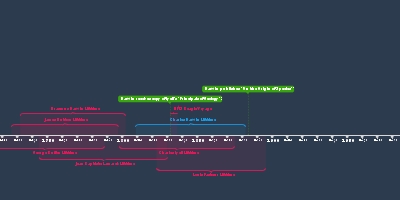24 nov 1859 - C. Darwin publishes "On the Origin of Species"
Description:
Darwin releases his book "On the Origin of Species Through Means of Natural Selection" which itself was an adaptation of his previous work called Natural Selection. Darwin's book described the struggle for existence where the strong and most well adapted survived to give birth to new generations. Darwin uses various proofs from his years of studies which are detailed in other events on the timeline.Darwin's book outlined 5 main points of Darwinism:
1. Perpetual Change
The world is constantly changing, and organisms must adapt to these changes. These changes create new species. Over a long period of time results in the diversity in creatures, we have today. (ex. fish evolving into man)
2. Common Descent
Organisms share many of the same systems. Darwin first noted this when he met Robert Edmond Grant, who was studying the relationship and growth of primitive marine invertebrates during the time Darwin was in college. Darwin theorized that organisms all originated from the same organism, where natural selection then drove the diversification of organisms.
3. Multiplication of Species
The creation of new species happens in a branching effect. Like a family tree, one species can branch off into many more species. Another reason for the great diversity of creatures we have today. This also demonstrates the common descent rule. With the multiplication of species, it can be back-tracked to a common ancestor. Humans are 50% similar genetically to fruit flies, but at some point, our common ancestor diverged into two different species.
4. Gradualism
Evolution and the formation of new species take very large amounts of time. Furthermore, it states that large genetic changes are usually bad. This theory is later disproved by various pieces of evidence. One good example of counter-evidence is the single generation evolution of microscopic organisms like bacteria.
5. Natural Selection
Through the struggle for existence, those best adapted to their environment (aka the highest fitness) survive to pass on their genes. This pushes evolution into favouring those with high fitness. If only the strong survive long enough to reproduce, then those will be the only genetic information being passed on. Individuals in a species can vary, and those with favourable traits have more opportunities to reproduce and pass on the trait.
Ajouté au bande de temps:
Date:
24 nov 1859
Maintenaint
~ Il y a 166 ans
